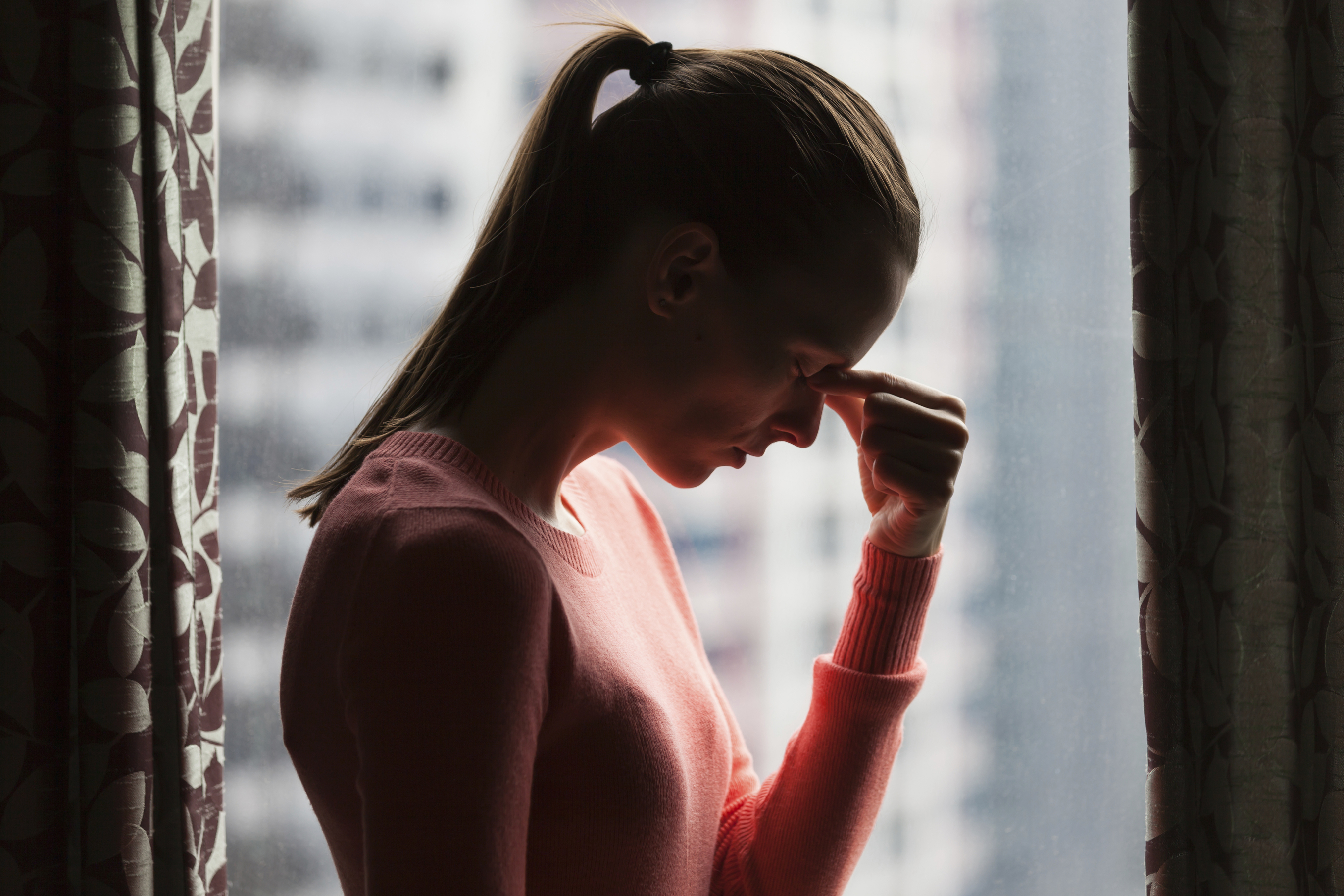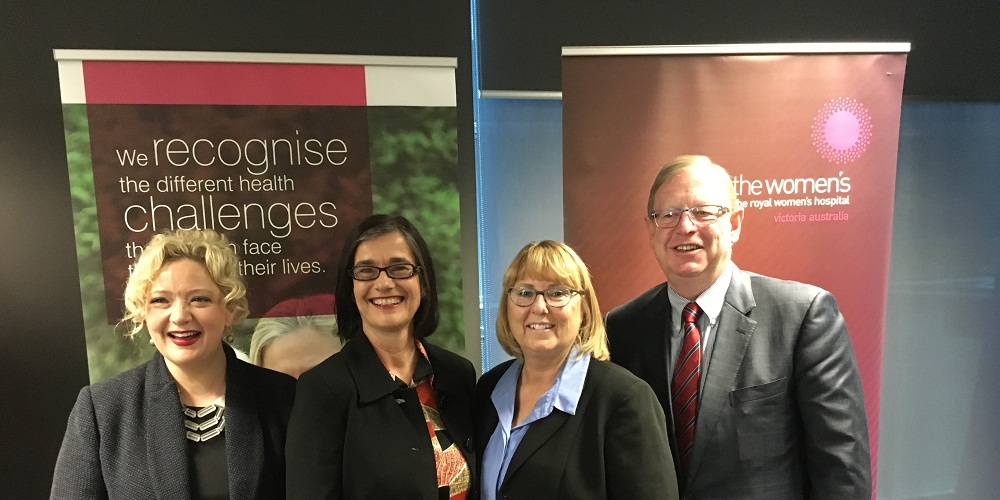Stepping up to the challenge of domestic violence

Professor Kelsey Hegarty is working closely with health practitioners to recognise domestic violence as a health issue, so they can intervene and help
Published 27 June 2016
I got the bug for domestic violence research from a colleague I admired. I was a GP in an inner-city Brisbane practice and a lecturer at the University of Queensland. A colleague applied for a PhD grant scholarship about domestic violence and alcohol, and asked if I was interested. I wasn’t sure. That grant wasn’t successful. But I got the bug. I secured a PhD scholarship for GPs and explored domestic violence prevalence in patients.
Overall, 1 in 5 women experience some sort of abuse. We surveyed 1800 women across 30 GP clinics and showed that 1 in 10 women experienced combined physical, sexual and emotional abuse while another group either experienced physical or emotional abuse alone.
I developed a new scale to measure domestic violence that became the new gold standard worldwide. Other scales measured either physical or sexual abuse, but weren’t capturing emotional abuse, which I did. This Composite Abuse Scale has changed how we assess abuse.
Women feel ashamed and embarrassed discussing abuse, so they have to trust doctors. In our study, one-third of women disclosed abuse to GPs while 1 in 10 was asked about it by their doctor.
Most GPs like me weren’t going the extra mile and asking them about it so I conducted a randomised controlled trial where we trained GPs to provide first line support and ongoing counselling. This intervention made a difference to women’s safety discussions and mental health.
When we train GPs about domestic violence we get them to reflect on their clinical practice, provide resource materials and give them the tools they need to ask the right questions, respond in an empathetic way, and discuss safety and safety planning. I recently helped develop the Royal Australian College of General Practitioners’ Abuse and Violence manual and an online module.
We are currently testing an online interactive web tool for women in unhealthy or unsafe relationships. I-DECIDE is a healthy relationship tool and safety decision aid. Women receive tailored messages, identify priorities for their relationship and are given an action plan. We are assessing whether female participants feel more confident, their mental health has improved and they access more help following this intervention. We are also developing tools for men who use violence and for children exposed to domestic violence.
Read here: How technology is helping in the fight against domestic violence
Rosie Batty has changed the landscape. But it’s sad that it took a woman forced to speak on the first day of her son’s murder to get the nation’s attention. Rosie Batty could speak with a voice that resonated with people, articulate what needed to happen and through her 2015 appointment as Australian of the Year make a difference in the policy space. This is despite the fact that feminists and bureaucrats have campaigned about the issue for decades.
I went from a back corner in the nineties to winning prizes for best research at primary care conferences. This includes the Charles Bridges-Webb Medal for outstanding research in academic general practice. And last year, the University of Melbourne funded our interdisciplinary research alliance MAEVe (Melbourne Research Alliance to End Violence against women and their children), which I co-chair with Cathy Humphries from the Department of Social Work. When Cathy came here, we joined forces and together we’re strong in the early intervention and response space.
We have got to do something new to address domestic violence because we haven’t stopped homicides, injuries, or women being isolated. The police, justice and specialised services need more funding. The Family Court is problematic for children of parents who are separated or divorced because it often doesn’t take into account family violence and is sending children to abusive men. All health practitioners need domestic violence training for the whole family so they can ask the right questions, provide a response to children and their parents and know where to refer. This is not happening consistently.
We also need to intervene across the prevention spectrum. Midwives in antenatal clinics and maternal and child health nurses could identify at-risk women. The respectful relationships education program being rolled out in schools also helps address gender-based violence. We need to intervene before teens start dating to ensure that boys and girls understand what it means to be respectful and in a consenting sexual relationship.

Victorian Premier Daniel Andrews has committed $572 million to tackle family violence and the Commonwealth government is also providing funding to this under-resourced area. But itisn’tenough. Canberra has just introduced a $30 levy on tax payers for domestic violence funding.
Domestic violence research is emotional. We recently went to the Australian Centre of Moving Image, where we worked with survivors of sexual violence and mental health issues and produced their digital stories. That was an emotional and enriching experience. Yes, survivors have a negative and horrible time, but many of them have made it to the other side and are giving back to the community.
I never dreamed that I’d get a personal chair in family violence prevention. It’s an amazing thing to have a strategic enabling role like this created by the University of Melbourne and Royal Women’s Hospital. I will be able work with the hospital, which sees an enormous number of women each year, to trial and evaluate new interventions and responses across the health system. This includes developing face-to-face and online programs that offer pathways of safety and wellbeing for female employees and patients having babies or accessing health, drug, social work and legal services at the hospital. This best practice prevention model probably hasn’t been trialled anywhere in the world, so one’s impact could be great, which is exciting.
— As told to Vicki Burkitt
1800 RESPECT (1800 737 732) is available 24 hours a day, seven days a week for any Australian who has experienced, or is at risk of, family and domestic violence and/or sexual assault.
Banner image: iStock
